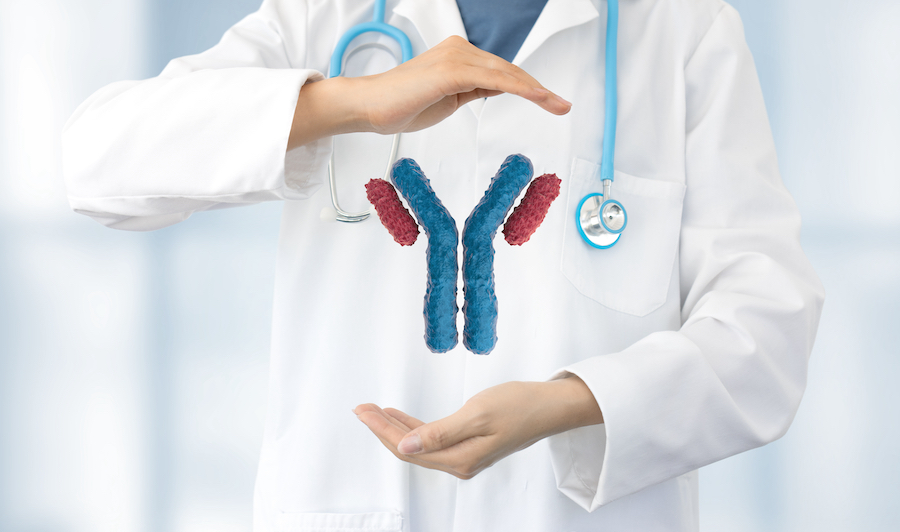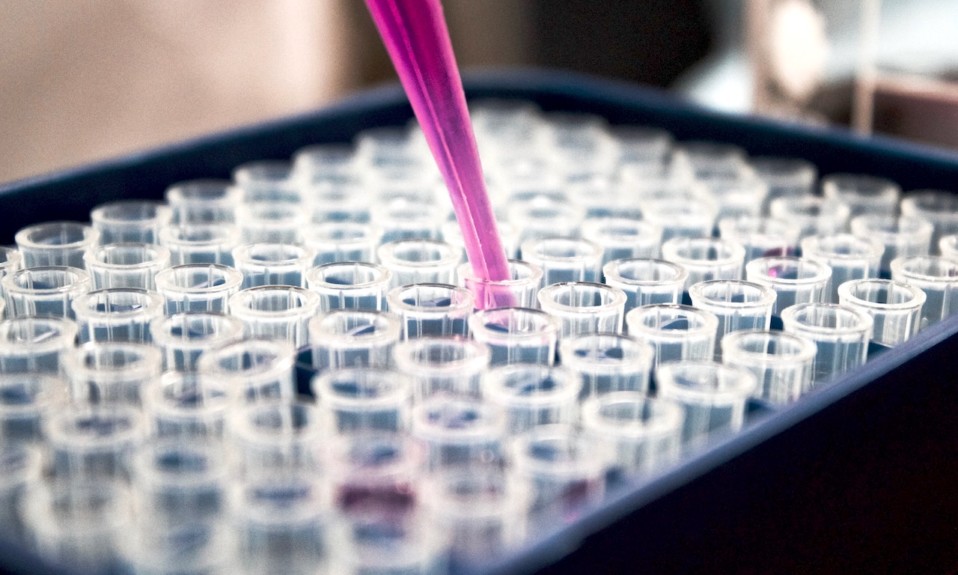Monoclonal antibodies are the key to the equation
By Jason Langendorf
As overdose deaths from methamphetamine use continue to climb in the U.S., driven in part by the effects of the pandemic, researchers believe they may have achieved a breakthrough in treating methamphetamine use disorder—using the same medical therapy that showed effectiveness in treating the COVID-19 virus.
A clinical trial using monoclonal antibodies to treat meth addiction is showing promise in settings across the country where the trial research is being conducted, including a hospital emergency room in Everett, Wash., that treats a high number of patients for overdose and other complications related to meth use.
Currently no FDA-approved medication for methamphetamine use disorder exists.
Thomas Robey, MD, an ER physician at Providence Regional Medical Center in Everett, describes the treatment as an “antidote” with potentially huge implications for people who are addicted to meth.
“I’m super excited about this particular agent because methamphetamine addiction is a disease of chaos,” Robey told KIRO Newsradio. “And so many of my patients don’t want to be on meth. But when you take meth, it often gets you stuck in a cycle, and this is a way to break that cycle.”
How the Monoclonal Antibodies Work
A key sticking point in reducing the rise of methamphetamine addiction has been a lack of available medicinal therapies that are proven. Recent research showed promise in combining two drugs used in the treatment of other conditions to help people who use meth scale back their usage, but currently no Food and Drug Administration (FDA)-approved medication for methamphetamine use disorder exists.

Although certain behavioral therapies, such as cognitive behavioral therapy (CBT), have demonstrated some efficacy, withdrawals and cravings after discontinuing meth use can be overpowering—with symptoms that might include exhaustion, insomnia, headaches, muscle spasms, anxiety, psychosis and suicidal ideation. The clinical trial at Everett—one of four sites where research is being conducted—seems to have revealed a medical treatment for meth that addresses all the significant physical manifestations of the drug.
Robey says the monoclonal antibody therapy binds meth in the bloodstream, circulates it away from the brain and sends it to the kidney and liver, which then allows the body to excrete the drug. No euphoria or intoxication, no crippling withdrawals. Just as important, the treatment has lasting effects, and no addictive properties.
“This antibody stays in the bloodstream for a long time,” Robey said. “The half-life is 19 days, which means that in 19 days, half of the [antibody] is still present in the bloodstream. And that results in a long-term effectiveness that could stretch out for more than a month.”
The Implications
While opioids receive outsized attention from the public, policymakers and sources of funding for prevention and treatment, methamphetamine, a stimulant, often takes a backseat in the discussion about America’s overdose crisis.
Meth overdose deaths nearly tripled between 2015 and 2019, according to the National Institute on Drug Abuse (NIDA), even before the onset of the pandemic. Recently, the Centers for Disease Control and Prevention (CDC) reported that overdose deaths from stimulants (most of them believed to be methamphetamine) rose from 25,000 to 33,000 in 2021.
Experts point to the emerging trend of mixing meth with opioids (often fentanyl) and the increasing potency of each as, at least in part, fueling the growing lethality of methamphetamine use. Meth-related overdose deaths involving fentanyl, according to the Pew Trusts Foundation, more than quadrupled—from 7% to 31%—during the 2015-19 time period.
An effective methamphetamine medication treatment could allow people stuck in a cycle of meth use to not only survive but also begin to take their lives back.
As Dan Ciccarone, a professor of family and community medicine at the University of California San Francisco, told The New York Times, “There’s an intertwined synthetics epidemic the likes of which we’ve never seen.”
An effective methamphetamine medication treatment could allow people stuck in a cycle of meth use to not only survive but also begin to take their lives back.
“Most people don’t come to the ER with sniffles, just like most meth users don’t come to the ER because they’re high,” Robey said. “What I see in the emergency department is people whose lives have been destroyed by methamphetamine, who are coming in with injuries, who are coming in with unmet medical needs, and who are coming in so agitated and out of control that the police get involved.
“This treatment is an innovative way to try to buy people some time away from the effects of methamphetamine.”
Image: Shutterstock














